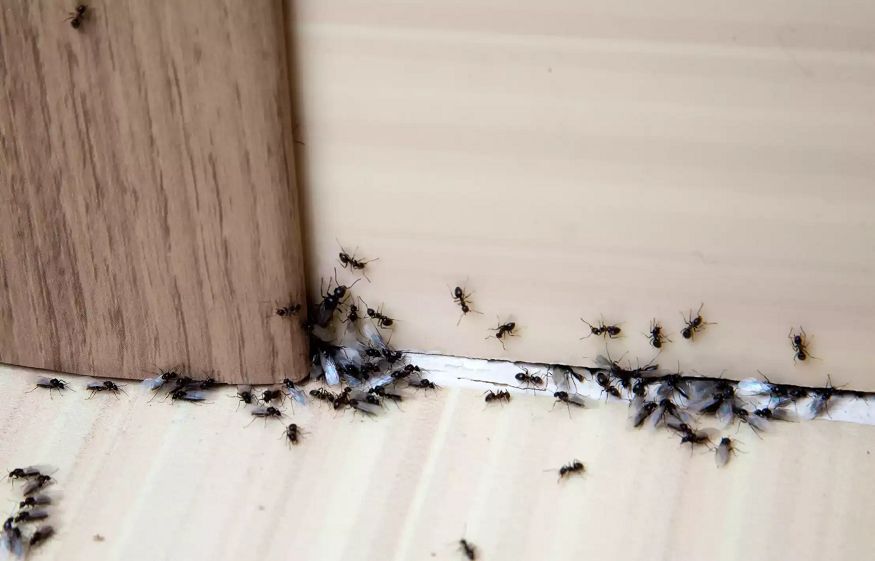Buying a new home in Ashburn is exciting. A new build has fresh paint and spotless floors that can make you proud of your investment. But some uninvited guests may also settle in your home while you are unpacking boxes and hanging curtains. Pests don’t care whether a house is brand new or a century old. They look for warmth, shelter, and food, which they can get from your newly built home. As a homeowner, you might want to know which pests to watch for to keep your space comfortable and pest-free. Also, you can always contact Green Pest Services if you suspect an infestation. The company will employ proven and tested elimination methods and can advise you on measures to protect your home from future invasions. You can contact the company through greenpestservices.net. Newly built homes in Ashburn may deal with the following pests:
Ants
Pavement ants and odorous house ants are the most common home invaders in Ashburn. These pests alert the rest of the colony when they find a food source. They can take advantage of tiny gaps that may form around pipes, doors, and windows during construction. Their trails may appear along baseboards, sinks, or kitchen counters. Abts can contaminate food and be a nuisance. So, keep surfaces clean and seal cracks to reduce their visits.
Termites
Construction materials left on the ground during building can attract termites. Ashburn’s humid climate supports both subterranean and drywood termites. Subterranean termites are the most destructive, building colonies underground and entering through foundations or cracks. They feed on wooden beams, floors, and furniture, weakening structures over time. Preventive measures like soil treatments and regular inspections help protect new homes. I
Cockroaches
Cockroaches often sneak into new homes through packaging materials, grocery bags, or appliances. Even spotless houses can attract them if the conditions are right. Roaches thrive in warm, moist areas, so kitchens, laundry rooms, and bathrooms can be prime spots.
German cockroaches are the most common in Ashburn, known for their fast reproduction and stubborn nature. They can spread bacteria and trigger allergies. Also, they can contaminate food surfaces. Keep food stored in sealed containers and wipe down counters to prevent an infestation. Also, fix any moisture problems under sinks or behind appliances.
Spiders
Spiders may move into new homes in search of insects to feed on. Construction activity and open doors make it easy for them to slip inside. Most spiders in Ashburn are harmless, but they are never wanted inside homes.
Common house spiders and cellar spiders build webs in corners, basements, and garages. The black widow and brown recluse are rarer but require attention due to their venomous bites. Reduce clutter and vacuum regularly to keep them out. Also, seal small cracks along walls or windows to prevent entry. Outdoor lighting can also attract the insects that spiders hunt, so use yellow or low-intensity bulbs to reduce their food supply.
Rodents
Freshly built homes can have small gaps near foundations, vents, or utility lines that make easy access points for rats and mice. These rodents may nest in attics, basements, or walls. They chew through insulation, wires, and stored items.
Rodents also pose health risks. Their droppings and urine can contaminate food and surfaces. Signs of an infestation include scratching sounds, gnaw marks, and droppings along baseboards. To deter them, inspect your home for gaps larger than a quarter inch and seal them with steel wool or caulk. Store food properly and remove trash frequently to cut off their food supply.
Silverfish
Silverfish may enter new homes through boxes or building materials. They target paper, glue, and fabric, damaging books, wallpaper, and clothing. Their favorite hiding spots include attics, basements, and bathrooms. Silverfish don’t bite or spread disease, but they can be persistent once established.
Lower humidity levels with dehumidifiers and store items in airtight containers to prevent infestations. Also, clear storage areas regularly to keep silverfish from finding comfortable hiding spots.



